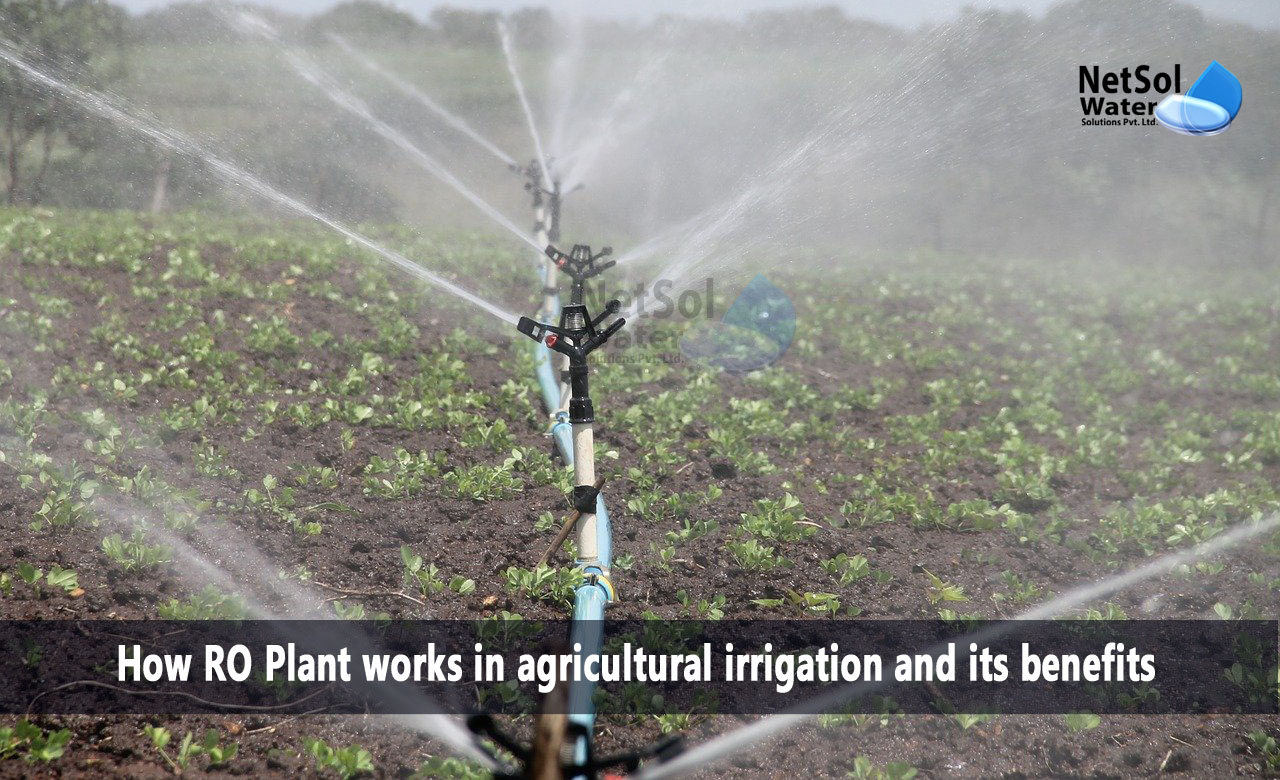How RO Plant works in agricultural irrigation and its benefits?
Access to freshwater resources is essential for successful agricultural practices and ensuring food security. However, in many regions, the available water sources for irrigation may be saline or contain high levels of salts and minerals. This poses a significant challenge for farmers as the excess salt can hinder crop growth and reduce overall agricultural productivity. Fortunately, reverse osmosis (RO) technology provides an effective solution for transforming saline water into a valuable resource for agricultural irrigation. In this blog, we will explore the role of reverse osmosis in agricultural irrigation, how it works, and the benefits it brings to sustainable food production.
1. Understanding Reverse Osmosis in Agricultural Irrigation:
1.1 The Role of Salinity in Agricultural Water Sources
Water sources for agricultural irrigation can be affected by natural factors such as proximity to the sea, high mineral content in underground aquifers, or human activities like improper wastewater disposal. These factors contribute to the presence of salts, minerals, and other contaminants in the water, making it unsuitable for direct use in irrigation.
1.2 How Reverse Osmosis Works in Removing Salinity
Reverse osmosis is a water treatment process that uses a semi-permeable membrane to remove dissolved salts and impurities from water. It works by applying pressure to the saline water, forcing it through the membrane while leaving behind the salts and contaminants. The result is clean, fresh water that is suitable for irrigation.
2. Benefits of Reverse Osmosis in Agricultural Irrigation:
2.1 Improved Crop Growth and Yield
By removing salts and minerals from the irrigation water, reverse osmosis ensures that plants receive water with a balanced and optimal composition. This prevents salt buildup in the soil, which can inhibit root growth and nutrient absorption. As a result, crops grown with reverse osmosis-treated water experience improved growth, increased yields, and higher-quality produce.
2.2 Soil Salinity Control
Excessive salt accumulation in the soil can lead to soil salinity, making it unsuitable for plant growth. Reverse osmosis helps prevent soil salinity by providing low-salinity water for irrigation, effectively leaching out excess salts from the soil and maintaining its fertility. This helps farmers sustain the productivity of their land over the long term.
2.3 Water Conservation
Reverse osmosis enables farmers to utilize alternative water sources that were previously deemed unsuitable for irrigation. By treating saline water, farmers can reduce their dependence on freshwater resources, thereby conserving precious water supplies and mitigating the strain on local water sources.
2.4 Sustainable Agriculture Practices
The use of reverse osmosis in agricultural irrigation promotes sustainable farming practices. It allows farmers to grow crops in regions with limited access to freshwater resources, reducing the need for unsustainable practices such as excessive groundwater extraction. Additionally, by reusing and treating wastewater through reverse osmosis, farmers can minimize the environmental impact of agricultural activities.
2.5 Adaptability to Different Crops and Regions
Reverse osmosis systems can be tailored to meet specific crop requirements and adapt to varying salinity levels in different regions. This flexibility enables farmers to optimize irrigation practices for specific crops, ensuring the ideal water quality and promoting successful cultivation.
Conclusion
Reverse osmosis technology is transforming saline water into a valuable resource for agricultural irrigation. By removing salts and contaminants, reverse osmosis provides farmers with clean, low-salinity water, enhancing crop growth, improving soil quality, and promoting sustainable agricultural practices. As the demand for freshwater resources continues to rise, the implementation of reverse osmosis in agricultural irrigation becomes increasingly vital for ensuring food security and supporting sustainable farming worldwide.
Netsol Water is Greater Noida-based leading water & wastewater treatment plant manufacturer. We are industry's most demanding company based on client review and work quality. We are known as best commercial RO plant manufacturers, industrial RO plant manufacturer, sewage treatment plant manufacturer, Water Softener Plant Manufacturers and effluent treatment plant manufacturers. Apart from this 24x7 customer support is our USP. Call on +91-9650608473, or write us at enquiry@netsolwater.com for any support, inquiry or product-purchase related query.



